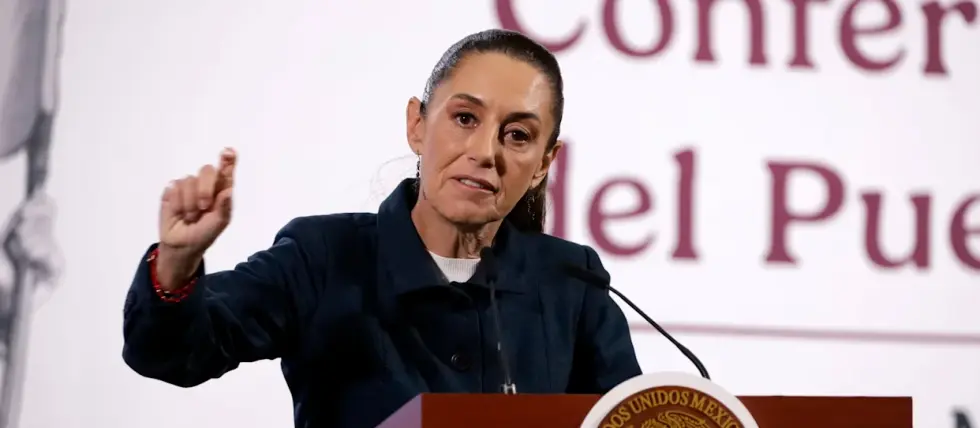New ‘Sin Tax’ on Gambling in Mexico Could Push Tax Rate to 50%
Mexico’s gambling sector is facing a significant tax hike as part of the National Budget for 2026, with new measures reportedly increasing the rate on gaming revenues from 30% to as high as 50%. The increase is part of a wider package of so-called sin taxes that also target soft drinks, tobacco, and violent or adult-themed video games.

The proposals come ahead of the formal presentation of the 2026 Economic Package by President Claudia Sheinbaum and Finance Secretary Rogelio Ramírez de la O, marking the first budget of the president's administration since she was elected president in 2024.
Related: US Gaming Body Reveals Alarming Growth of Illegal GamblingThe reported tax changes are expected to impact several high-consumption sectors. Gambling operators are facing the sharpest increase, with a 20% rise in the Special Tax on Products and Services (IEPS) applied to gross gaming revenues.
In addition, soft drinks will be subject to an excise duty of MX$3.08 per litre, a rate that will apply even to sugar-free beverages. Tobacco products will see tax hikes ranging from 160% to 200%, measures that are expected to double the cost of smoking. A new 8% levy is also proposed for violent and adult-themed video games, which the government frames as a moral and public health initiative.
The gambling industry is widely seen as one of the sectors most directly affected. A move to raise the rate to 50% would make Mexico one of the highest-taxed gambling jurisdictions in Latin America, surpassing countries that have traditionally maintained less aggressive taxation.
With Mexico’s gambling market estimated at around $10 billion, analysts believe the increase could discourage both domestic and international investment, potentially slowing down a sector that has grown in connection with tourism, entertainment, and digital expansion.
Industry groups have already begun voicing opposition. The Mexican gambling trade body AIEJA launched a national media campaign last week that highlighted the economic contributions of licensed operators, including their connections with technology, IT services, and tourism.
More Regulation News
 Regulation
Regulation
Hernandez Breaks Silence After UFC 324 Fight Canceled over Suspicious Betting
Feb 02, 2026Gambling to Help Restructure Mexico
In its messaging, the association questioned why gambling was excluded from broader national development initiatives aimed at modernizing banking, fintech, anti-money laundering systems, and digital infrastructure. AIEJA’s position is that gambling, when regulated and supported, could play a pivotal role in Mexico’s economic transformation.
The government, however, is banking on the tax changes to strengthen its fiscal position. Official estimates project that the combined sin tax measures will generate approximately MX$41 billion (US$2.93 billion).
These revenues are part of a broader plan to close a budget deficit, with Mexico’s 2026 expenditure projected at MX$10.1 trillion (US$643.5 billion) against expected revenues of MX$8.7 trillion, leaving a shortfall of MX$1.4 trillion (US$81.9 billion). The administration is also planning MX$1.7 trillion in new domestic debt and $15.5 billion in foreign debt issuance to cover spending commitments.
Despite the deficit, the Treasury has stated that Mexico’s fiscal outlook remains solid. The debt-to-GDP ratio is forecasted to remain stable at 52.3%, a figure that compares favorably with regional peers such as Brazil and Argentina.
Policymakers argue that this fiscal framework allows the government to expand social programs and infrastructure investment without jeopardizing overall stability. However, critics warn that the tax hikes could reduce competitiveness in industries such as gambling, soft drinks, and digital content creation.
There is also renewed debate over Mexico’s regulatory framework for gambling. Many stakeholders have argued that the Federal Gaming and Lottery Law of 1947 is outdated and ill-suited to a modern digital and retail betting environment.
Calls for reform have intensified as the government seeks to extract higher tax revenues from the sector while leaving its legal framework largely unchanged. Whether the Sheinbaum administration will take steps to modernize gambling legislation alongside its fiscal reforms remains an open question, but the tax hikes alone are already setting the stage for a contentious debate between policymakers and industry stakeholders.
RELATED TOPICS: Regulation
Most Read
Mississippi Committee Advances Bill to Criminalize Online Sweepstakes Casinos
Jan 29, 2026Giuseppe Iadisernia Wins Seminole Hard Rock Lucky Hearts Poker Open Championship
Jan 28, 2026Must Read
 Interviews
Interviews
Exclusive Interview: Levon Nikoghosyan Shares AffPapa Winning Formula for Successful iGaming Events
Dec 03, 2025 Interviews
Interviews





Review this New Post
Leave a Comment
User Comments
Comments for New ‘Sin Tax’ on Gambling in Mexico Could Push Tax Rate to 50%